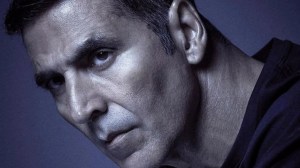Disney says no more Happy Meals
Action over obesity fears, end of Nemo, Mr Incredible toys with meals

For 10 years, Walt Disney Co. and McDonald’s appeared to have the perfect marriage. Happy Meals bore little figurines of Nemo, Mr Incredible and 101 Dalmatians. But no more. This is one relationship that’s ending because of the children.
Disney is not renewing its cross-promotional pact with the fast-food giant, which comes to a close with this summer’s release of Cars and Pirates of the Caribbean: Dead Man’s Chest. The reason, in part, say multiple high-ranking sources within Disney, is that the company that prides itself on being family friendly wants to distance itself from fast food—and its links to the epidemic of childhood obesity.
Disney’s not the only studio that thinks french fries loaded with trans fats may be too hot to handle. DreamWorks is working with McDonald’s to promote Shrek 3, due out in 2007. But according to one top-level source inside the studio, there is internal debate about whether the lovable green ogre should steer clear of Chicken McNuggets and Big Macs in favour of the healthier fare on McDonald’s menu, such as salads. (Shrek is, after all, overweight.)
The end of the Happy Meal partnership comes at a time when the processed- and fast-food industries are under fire because of growing concerns about expanding waistlines, particularly among youngsters. Just last week, former President Clinton succeeded in yanking sugary sodas from elementary school campuses.
‘‘I think it would have an impact in contributing to the cultural change that is necessary,’’ says Dr J Michael McGinnis, chairman of a National Academy of Science panel that just released a study showing how food marketing adversely affects children’s diets.
One of the industry’s most prominent critics, Fast Food Nation author Eric Schlosser, said it will be ‘‘hugely significant’’ if Hollywood walks away from Happy Meals. ‘‘It will put more pressure on McDonald’s to change what they sell in Happy Meals. The obesity issue would be irrelevant if the food in the Happy Meals was healthy.’’
In a conference call with analysts last August, Steve Jobs, chairman of Pixar Animation Studios and now Disney’s largest shareholder, signalled the company’s ambivalence about its involvement with the fast-food sector: ‘‘There is value in (fast-food tie-ins). But there are also some concerns, as our society becomes more conscious of some of the implications of fast food.’’
Sources on both sides of the agreement say the parting of the ways was mutual. And it’s not a complete divorce, either. McDonald’s fare will continue to be a staple in Disney’s theme parks.
Disney is also leaving open the possibility of McDonald’s promotions geared towards adults. Disney released a statement praising its decades-long relationship with McDonald’s.
Other factors besides health concerns contributed to the unravelling of the alliance, said to be worth $1 billion to Disney. Under the terms of the agreement, McDonald’s paid $100 million in royalties and conducted 11 promotions a year for Disney films, videos and TV shows, with seven aimed specifically at the Happy Meal clientele. Disney also agreed to let McDonald’s set up shop inside its theme parks.
While the relationship boasted hit promotions for such films as 101 Dalmatians and Lilo & Stitch, some McDonald’s franchisees began to chafe when the studio churned out clunkers such as Treasure Planet. The company also had to abide by Disney’s strict rules regarding use of its characters, which were not allowed to be seen eating McDonald’s food.
RACHEL ABRAMOWITZ






- 01
- 02
- 03
- 04
- 05

























